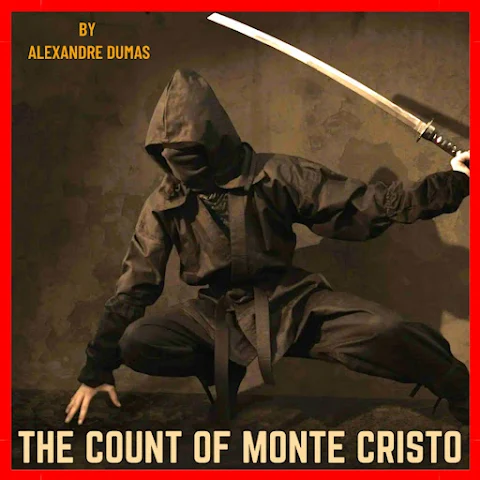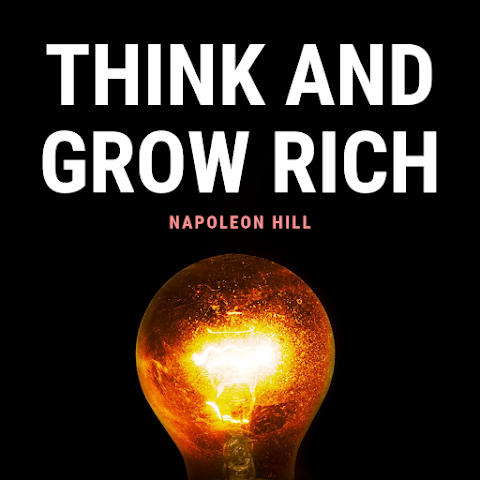Introduction
The Count of Monte Cristo stands as a masterpiece of character transformation, presenting some of literature's most compelling and psychologically nuanced character developments. This comprehensive analysis delves deep into the intricate evolution of key characters, examining how their experiences, choices, and interactions shape their development throughout this epic narrative. From the dramatic transformation of Edmond Dantès to the subtle psychological shifts in supporting characters, the novel presents a rich tapestry of human growth, regression, and redemption.
What makes the character development in The Count of Monte Cristo particularly fascinating is its exploration of how extreme circumstances can fundamentally alter an individual's personality, morality, and worldview. Through careful analysis of each character's journey, we gain insight into the profound impact of betrayal, isolation, wealth, and power on the human psyche.
Listen to the Original Story:
Listen on SpotifyEdmond Dantès' Transformation
Central Character Evolution
The transformation of Edmond Dantès represents one of literature's most profound examples of character development, charting a course from innocent youth to complex avenger, and ultimately to a figure of wisdom and redemption.
Initial Character State
At the novel's opening, Dantès embodies the archetypal young hero, characterized by:
- Youthful Innocence
- Unwavering faith in human goodness
- Pure, unconditional love for Mercédès
- Trust in societal justice
- Optimistic worldview
- Professional Character
- Strong work ethic and dedication
- Natural leadership abilities
- Respect from colleagues and superiors
- Clear career trajectory
- Personal Relationships
- Deep filial devotion to his father
- Passionate romance with Mercédès
- Loyal friendships
- Community integration
Prison Transformation
The Château d'If serves as the crucible for Dantès' metamorphosis, fundamentally altering his character through:
- Mental Evolution
- Development of strategic thinking
- Cultivation of patience and cunning
- Mastery of emotional control
- Enhancement of analytical abilities
- Educational Development
- Comprehensive education under Abbé Faria
- Mastery of multiple languages
- Understanding of human psychology
- Acquisition of scientific knowledge
- Psychological Transformation
- Loss of naive optimism
- Development of complex moral framework
- Integration of darkness and light
- Formation of revenge-focused identity
The Impact of Isolation
The fourteen years of imprisonment create fundamental changes in Dantès' psyche:
- Emotional Evolution
- Transformation of love into calculated purpose
- Development of emotional detachment
- Cultivation of patience as a weapon
- Integration of suffering into strength
- Philosophical Growth
- Development of complex moral philosophy
- Understanding of human nature's duality
- Appreciation of knowledge as power
- Formation of personal code of justice
The Count's Persona
Constructed Identity and Psychological Complexity
The emergence of the Count of Monte Cristo identity represents a masterwork of character construction, both within the narrative and as a literary creation. This carefully crafted persona serves as both armor and weapon in Dantès' quest for vengeance.
External Manifestation
- Social Presentation
- Carefully cultivated aristocratic manner
- Multiple cultural identities and personas
- Strategic use of wealth and influence
- Theatrical elements in public appearances
- Behavioral Architecture
- Calculated social interactions
- Strategic relationship building
- Manipulation of social expectations
- Precise timing of revelations
- Public Image Management
- Creation of mysterious background
- Control of information flow
- Strategic use of rumors
- Cultivation of specific reputations
Internal Landscape
- Psychological Struggles
- Balance between justice and revenge
- Conflict between past and present selves
- Management of emotional attachments
- Wrestling with divine justice role
- Identity Integration
- Reconciliation of multiple personas
- Maintenance of core self
- Navigation of moral boundaries
- Evolution of purpose and meaning
- Emotional Complexity
- Suppression of natural empathy
- Calculated emotional distance
- Strategic use of passion
- Management of personal attachments
The Weight of Performance
The maintenance of the Count's persona requires constant vigilance and presents unique challenges:
- Psychological Costs
- Strain of constant performance
- Isolation within the role
- Suppression of natural responses
- Management of dual consciousness
- Strategic Considerations
- Timing of character revelations
- Balance of multiple identities
- Maintenance of mysterious elements
- Integration of past and present
Supporting Characters
Complex Development
- Mercédès' Journey
- Initial Characterization
- Pure love for Dantès
- Youthful optimism and dreams
- Strong sense of loyalty
- Cultural and social context
- Life Choices and Consequences
- Marriage to Fernand
- Adaptation to aristocratic life
- Maternal dedication
- Moral compromises
- Personal Growth
- Recognition of past mistakes
- Development of moral courage
- Sacrifice for truth
- Final redemption
- Initial Characterization
- Albert's Evolution
- Initial Character State
- Privileged upbringing
- Naive worldview
- Strong sense of honor
- Filial devotion
- Critical Development Points
- Friendship with the Count
- Discovery of family secrets
- Moral testing
- Personal crisis
- Character Maturation
- Acceptance of truth
- Moral growth
- Independence development
- New identity formation
- Initial Character State
- Maximilian Morrel
- Character Foundation
- Military background
- Strong moral principles
- Family loyalty
- Romantic idealism
- Relationship Impact
- Love for Valentine
- Friendship with the Count
- Family obligations
- Testing of faith
- Growth Through Adversity
- Facing loss
- Trust in providence
- Emotional resilience
- Ultimate reward
- Character Foundation
Antagonist Development
Villain Evolution
The antagonists in The Count of Monte Cristo undergo their own complex transformations, serving as dark mirrors to Dantès' journey and illustrating the corrupting influence of power, greed, and ambition.
Fernand Mondego's Descent
- Early Character
- Initial jealousy and ambition
- Military career aspirations
- Unrequited love for Mercédès
- Seeds of betrayal
- Rise to Power
- Transformation into Count de Morcerf
- Political and social climbing
- Marriage to Mercédès
- Military achievements and honors
- Moral Deterioration
- Growing corruption and betrayal
- Abandonment of principles
- Sacrifice of honor for position
- Loss of authentic identity
- Final Downfall
- Exposure of past crimes
- Loss of social standing
- Family's rejection
- Ultimate fate
Complex Antagonists
- Gérard de Villefort
- Professional Ambition
- Career-driven decisions
- Sacrifice of justice
- Political maneuvering
- Personal compromise
- Family Dynamics
- Complicated relationships
- Generational sins
- Domestic struggles
- Paternal failures
- Psychological Descent
- Growing paranoia
- Moral compromise
- Mental deterioration
- Final breakdown
- Professional Ambition
- Baron Danglars
- Financial Evolution
- Rise in banking world
- Wealth accumulation
- Material obsession
- Economic power
- Character Flaws
- Consuming greed
- Moral bankruptcy
- Social climbing
- Cowardice revealed
- Retribution Arc
- Financial ruin
- Loss of status
- Personal humiliation
- Final lesson
- Financial Evolution
- Caderousse
- Moral Weakness
- Initial complicity
- Opportunistic nature
- Ethical compromises
- Self-destructive choices
- Degradation
- Progressive moral decay
- Criminal activities
- Failed redemption
- Tragic end
- Moral Weakness
Psychological Depth
Character Complexity and Mental Evolution
The psychological depth in The Count of Monte Cristo extends beyond simple character development, delving into the intricate workings of the human psyche under extreme circumstances and moral pressures.
Trauma and Transformation
- Impact of Imprisonment
- Psychological scarring
- Adaptive mechanisms
- Coping strategies
- Identity preservation
- Post-Trauma Growth
- Resilience development
- Emotional fortification
- Wisdom through suffering
- Strength from adversity
Emotional Intelligence Development
- Relationship Understanding
- Complex motivations
- Human nature insights
- Manipulation awareness
- Emotional leverage
- Self-Awareness Growth
- Identity integration
- Emotional regulation
- Purpose clarity
- Personal boundaries
Moral Psychology
- Ethical Development
- Justice concepts
- Revenge psychology
- Moral relativism
- Ethical boundaries
- Value Evolution
- Principle reformation
- Priority shifts
- Moral compass adjustment
- Personal code development
Healing and Redemption
- Recovery Processes
- Emotional healing
- Trust restoration
- Relationship repair
- Self-forgiveness
- Growth Patterns
- Character evolution
- Wisdom acquisition
- Emotional maturity
- Spiritual development
Social Intelligence
- Interpersonal Dynamics
- Social perception
- Relationship management
- Power dynamics
- Influence techniques
- Adaptive Behaviors
- Social flexibility
- Role adaptation
- Identity management
- Strategic relationships
Educational Value
The character development in The Count of Monte Cristo offers profound insights into human nature, personal growth, and the impact of experience on individual evolution.
Conclusion
Through masterful character development, Dumas creates a rich tapestry of human transformation that explores the depths of revenge, redemption, and personal growth, making The Count of Monte Cristo a timeless study in character evolution.



